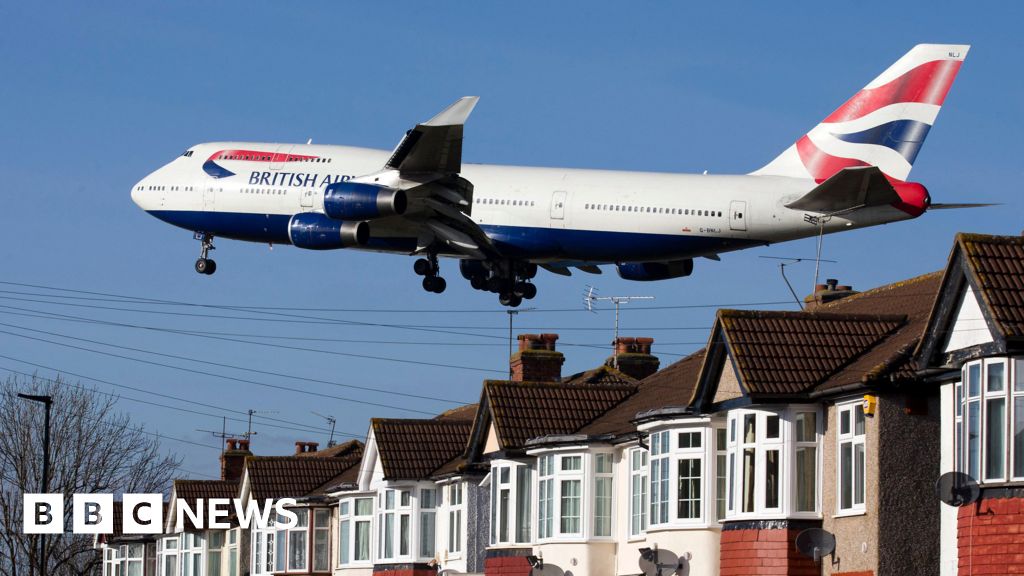Trump Officials Deported Another Man Despite Court Order


A federal appeals panel ordered officials not to deport a 31-year-old to El Salvador. Minutes later, it happened anyway. The government blamed “administrative errors.” The Trump administration deported a 31-year-old Salvadoran man minutes after a federal appeals court barred his removal while his case proceeded, the government admitted in a court filing this week. In its filing, the government denied that it had violated the order from the U.S. Court of Appeals for the Second Circuit, in New York, instead blaming “a confluence of administrative errors.” The filing argues that because the process of deporting the man, Jordin Melgar-Salmeron, had already started before the court issued its formal order, at 9:52 a.m. May 7, that meant the order had not been violated. The plane carrying Mr. Melgar-Salmeron to El Salvador did not take off from Alexandria, La., until 10:20 a.m. Eastern time, according to the government’s timeline. The government had also previously given the court what the judges called “express assurance” that it would not schedule a deportation for him until the next day. The deportation deepened the questions surrounding the Trump administration’s legal tactics and administrative errors as it has sought to carry out the president’s aggressive vision of deporting as many as one million immigrants during his first year in office. In at least three other deportation cases, federal judges have determined that Trump officials expelled people from the country in violation of standing court orders. In an interview, one of Mr. Melgar-Salmeron’s lawyers disputed the government’s characterization of the deportation as a mistake, saying it appeared to be part of a larger pattern of the administration ignoring court orders. “It would be an absurd level of mistake,” said Matthew Borowski, the lawyer, comparing it to a chef pouring in pepper instead of salt. “Verifying the paperwork and putting the right people on the plane is their job.” The questions raised by the court over the deportation were reported earlier by Investigative Post, a nonprofit news outlet in Western New York. In a filing on Wednesday in response to questions from the three-judge appellate panel, the government detailed a series of communication lapses between an Immigration and Customs Enforcement office in Buffalo, which was responsible for monitoring Mr. Melgar-Salmeron’s legal case, and one in Louisiana, where he was being held. Administration lawyers emailed the Buffalo office at 10:08 a.m. May 7, but the office did not flag the court’s order in ICE’s internal system until 10:45 a.m., after the flight had taken off, an ICE official told the court. Mr. Melgar-Salmeron, who had been affiliated with the MS-13 street gang and had previously served two years in federal prison after pleading guilty to possession of an unregistered sawed-off shotgun, was appealing an order for his removal, fearing he could be sent to prison in El Salvador and persecuted there, his lawyer said. He had disavowed MS-13 and now has a wife and four children in Virginia, Mr. Borowski said. He said his client’s family believes Mr. Melgar-Salmeron is being held in a maximum-security prison in El Salvador. The appellate judges have not yet indicated how they will respond. Mr. Borowski said he would soon file papers asking the court to appoint a special master who could determine whether any officials should be held in criminal contempt. In each of the other cases where migrants have been deported despite court orders, the judges have subsequently issued new orders instructing Trump officials to take steps toward bringing them back to the United States so they could be afforded due process. The best known of the cases is arguably that of Kilmar Armando Abrego Garcia, a Salvadoran man who was arrested on March 12 by federal immigration agents in Maryland after living in the state for nearly six years under the protection of a judicial order that barred him from being returned to his homeland because he might face danger there. Three days after he was taken into custody, Mr. Abrego Garcia was flown to El Salvador — the one place the order forbade him from being sent — in what officials later called an “administrative error.” For more than two months now, Mr. Abrego Garcia, who is married to a U.S. citizen, has been locked in one of El Salvador’s most notorious prisons despite three court orders — including one from the Supreme Court — instructing the White House to “facilitate” his release. Judge Paula Xinis, who has been handling the case in Federal District Court in Maryland, has spent the past few weeks trying to determine whether to hold the administration in contempt for not complying with those orders. But the Justice Department, acting on the behalf of the White House, has repeatedly stonewalled her efforts to get information about the steps the administration has taken to secure Mr. Abrego Garcia’s freedom. In a similar case, another federal judge in Maryland, Stephanie A. Gallagher, has ordered the administration to facilitate the return of a 20-year-old Venezuelan man, known in court papers as Cristian, who was expelled to El Salvador on the same set of flights as Mr. Abrego Garcia. Cristian, who was convicted of possessing cocaine, had sought asylum in the United States, but was nonetheless expelled to El Salvador in violation of a settlement agreement that immigration lawyers and the Department of Homeland Security reached in the waning days of the Biden administration. Under that agreement, unaccompanied minors who arrive in the United States and claim asylum cannot be removed from the country until their cases are fully resolved. Judge Gallagher’s order directing the administration to take steps toward bringing Cristian back to the United States was affirmed this month in a scathing ruling by a federal appeals court in Virginia, which noted the Trump administration’s serial efforts to sidestep court rulings. “As is becoming far too common,” one of the appeals court judges, Roger Gregory, wrote, “we are confronted again with the efforts of the executive branch to set aside the rule of law in pursuit of its goals.” Like Judge Xinis, Judge Gallagher has been trying to get to the bottom of the White House’s recalcitrance. Last week, she ordered Trump officials to send her an update by Wednesday about what they had done to secure Cristian’s return. When the officials failed to follow her instructions, the judge reprimanded them sharply, saying they had “utterly disregarded” her directives. “Defendants’ untimely response,” she wrote, “is the functional equivalent of, ‘We haven’t done anything and don’t intend to.’” In yet another case, the Trump administration has signaled that it intends to comply with a judge’s order to bring back a wrongfully deported immigrant. Last week, Judge Brian E. Murphy issued a ruling in Federal District Court in Boston, telling the White House to facilitate the return of a Guatemalan man deported to Mexico even though he said he had been raped and kidnapped there. Judge Murphy determined that the man, known only as O.C.G., had been sent to Mexico in violation of an order the judge issued in April forbidding immigrants from being expelled to a country not their own without having a “meaningful opportunity” to challenge their removal. Immigration officials initially asserted that O.C.G. had not sought to contest his deportation to Mexico, but then reversed themselves, saying that they were unable to find any officers had properly informed him of his removal or heard him say that he accepted it. On Wednesday, the Trump administration said it was taking steps to follow Judge Murphy’s order. Immigration authorities made contact with O.C.G.’s legal team over the weekend and were working to bring him back to the United States on a charter flight, according to the two-page filing in the case.
What's Your Reaction?
 Like
0
Like
0
 Dislike
0
Dislike
0
 Love
0
Love
0
 Funny
0
Funny
0
 Angry
0
Angry
0
 Sad
0
Sad
0
 Wow
0
Wow
0











































